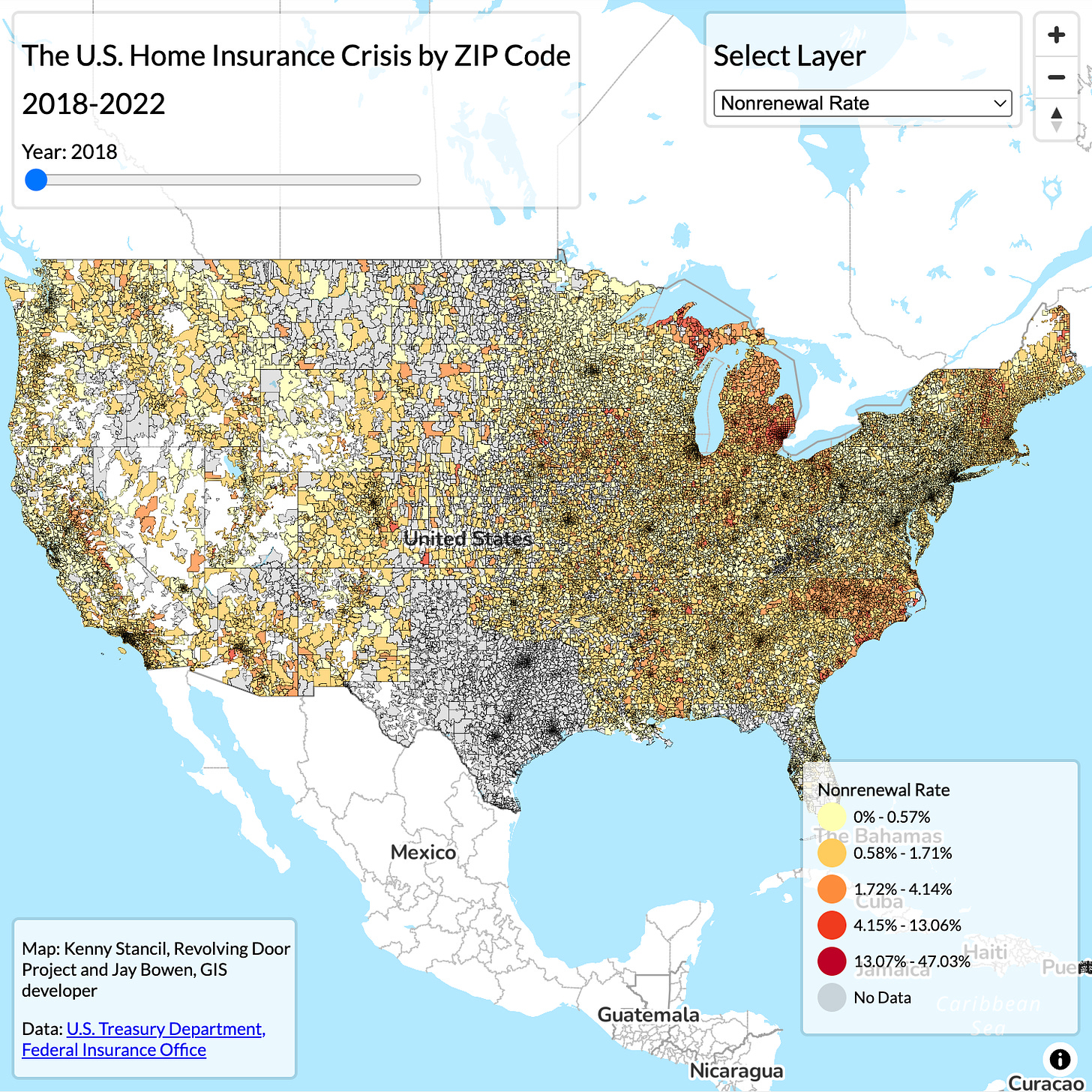Transition Finance Weekly - 5/1/2025
Musk’s Memphis Pollution, Lander Presses Wall Street, Dartmouth Proves the Climate Connection
1. Trump’s Abandonment of Disaster Victims Continues
The administration leaves storm-battered Arkansans in the lurch.
The Trump administration rejected a request for federal disaster aid from Arkansas, where recent brutal storms killed more than 60 people and leveled communities.
Trump’s rejection comes amid a broader assault on federal disaster preparedness and recovery, including a threat to eliminate FEMA (for which there is no adequate state replacement) and replace it with restricted state block grants. Deep cuts to NOAA and the National Weather Service have also crippled our ability to prepare, including by reducing the use of weather balloons that could have saved lives.
Further politicization of disaster aid is coming. The administration rushed stalled FEMA payments to GOP-led states while other states waited, and it’s considering cuts that would make it even harder for communities to qualify for disaster assistance.
The federal government plays a key role in providing its expertise and financial support to states: intentionally decimating federal disaster response and weather monitoring has and will cost lives, especially as states brace for hurricane and tornado season.
Washington Gov. Bob Ferguson on his state being denied $34 million in disaster relief: “There are very clear criteria to qualify for these emergency relief funds. Washington’s application met all of them. This is another troubling example of the federal government withholding funding.” He plans to appeal.
2. Musk’s Dirty (and Illegal) Gas
Memphis communities are paying the price for his AI data center.
Memphis residents and environmental advocates are raising alarms over how fast Elon Musk’s xAI datacenter in Memphis has quietly become one of the region’s largest polluters. Satellite imagery obtained by the Southern Environmental Law Center (SELC) shows xAI is using 35 portable methane gas turbines – without permits – to power its supercomputer.
The turbines, which generate enough power for an entire city, are major sources of toxic carcinogens and emissions. Yet Memphis Mayor Paul Young and xAI have continued to downplay the situation, claiming only a fraction of the turbines are in use, despite evidence to the contrary.
And that’s not all: shady misinformation campaigns are targeting nearby predominantly Black neighborhoods, with flyers making the absurd claim that “[t]hose 15 xAI turbines [are] specially designed to protect the air we all breathe.”
Amanda Garcia, Senior Attorney for the Southern Environmental Law Center: “xAI’s failure to disclose that it’s running dozens of these polluting turbines at its south Memphis data center has left Memphians in the dark about what is being pumped into the air they breathe every day.”
3. The Legal Case for Climate Liability Just Got Stronger
Dartmouth researchers find the smoking gun.
A new study from Dartmouth confirms that just 21 fossil fuel companies are responsible for an eye-popping $28 trillion in global heat-related economic losses – and that figure doesn’t even include costs from extreme weather or climate disasters.
The study established a critical causal link for states pursuing a “polluters pay” approach to climate cleanup. New York and Vermont have already passed “polluters pay” laws, with other states like California actively pursuing legislation that could open the door to similar efforts.
Geography Professor Justin Mankin, the study’s senior author: “We argue that the scientific case for climate liability is closed, even if the future of these cases remains an open question.”
4. Lander Puts Wall Street on Notice – Again
NYC pensions double down on net zero.
New York City Comptroller Brad Lander is keeping the pressure on, leveraging the city’s $284 billion in pension assets to get material financial information from major asset managers. In a sharp rebuke of Wall Street’s climate backslide, Lander announced he will evaluate managers on their net-zero transition plans.
His evaluations will take Scope 3 emissions into account, and assess the climate impact of their entire portfolios. Asset managers overseeing the city’s three large pension plans must now submit their plans by the end of June.
Lander has previously used his position to negotiate energy financing ratio disclosure from major banks and has steered his stewarded funds away from risky investments in fossil fuels.
From Lander’s letter to asset managers: “Our new standards demand that the retirement systems’ managers strengthen their net zero plans consistent with their fiduciary duty — or we will find new asset managers who will.”
SPOTLIGHT: Spotlight: New Tool Maps the Growing Home Insurance Crisis
As if you needed any additional proof of the scale and severity of the national home insurance crisis, here it is. Last week, the Revolving Door Project and Public Citizen released a new interactive tool showing how the home insurance crisis is being felt in every corner of the country, with seven metrics of insurance affordability and access broken down by zip code to provide it.
Skyrocketing home insurance premiums, along with nonrenewals and cancellations by private insurers, are leaving Americans en masse at risk from climate-fueled extreme weather events that are becoming the norm. And it’s happening nearly everywhere, even in places you’d never expect.
SEE THE MAP: Check out how the insurance crisis is impacting your own community







